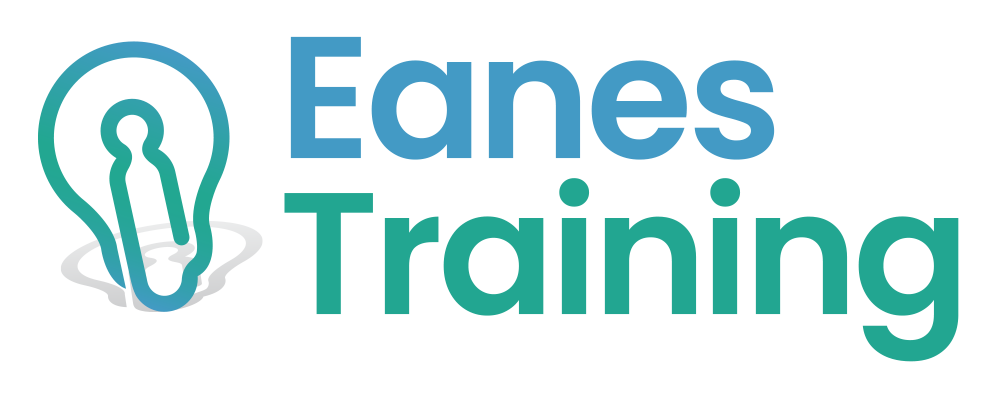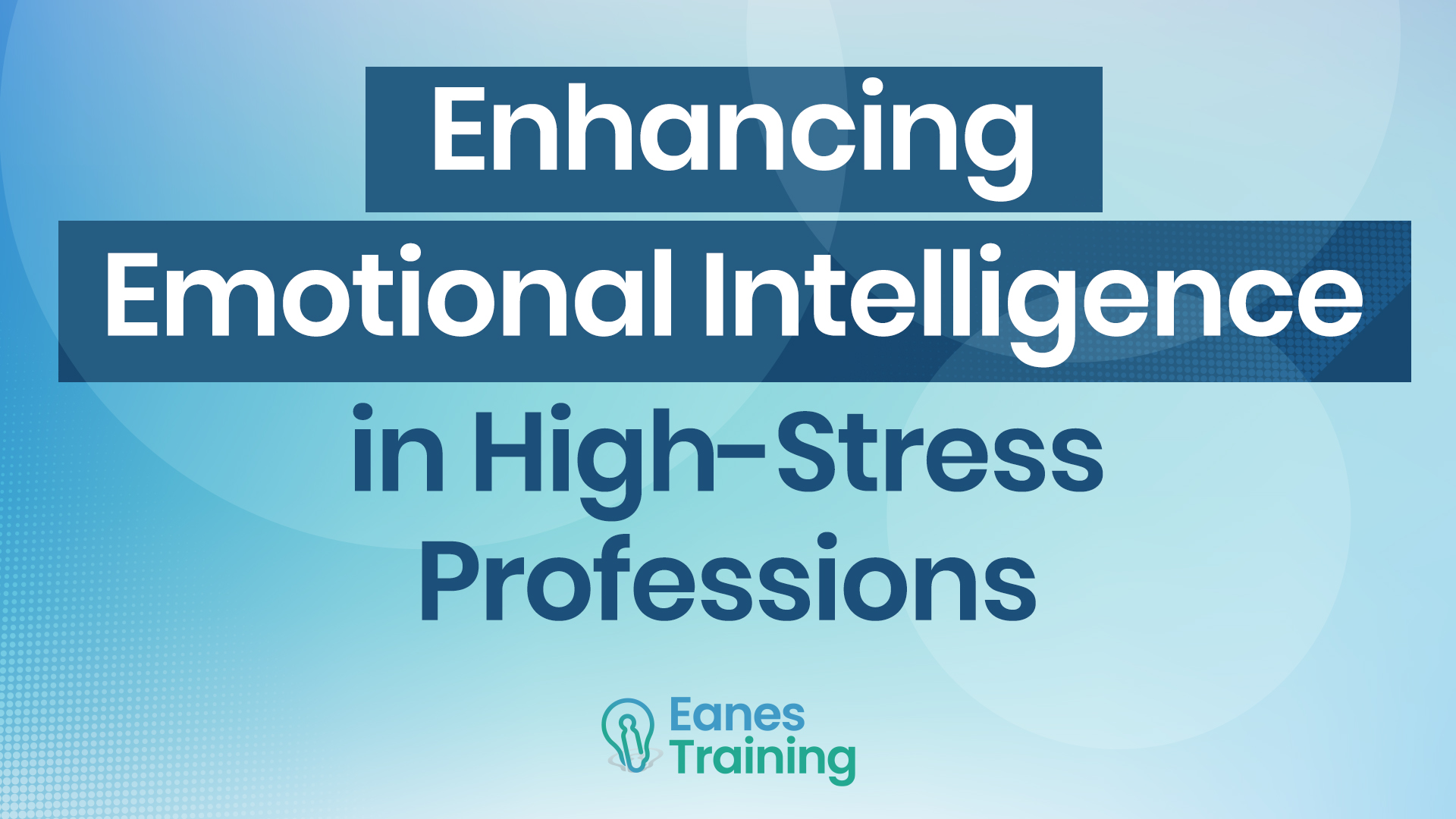Professionals in high-stress fields such as healthcare, law enforcement, and emergency response face immense pressure and challenges daily. These individuals are often required to make critical decisions, manage complex situations, and navigate intense emotions while maintaining their composure and delivering exceptional performance. One key factor that can significantly impact their ability to thrive in these demanding environments is emotional intelligence (EI).
Emotional intelligence refers to the ability to recognize, understand, and manage our own emotions, as well as the emotions of others. It plays a crucial role in managing stress, improving job performance, and maintaining mental health, particularly in high-stress professions. By developing a strong foundation in EI, professionals can better navigate the emotional landscape of their work, foster stronger relationships with colleagues, and ultimately enhance their overall effectiveness in their roles.
To support the growth of emotional intelligence in high-stress professions, investing in effective training and development tools is essential. These resources can help individuals cultivate the necessary skills and strategies to manage their emotions, communicate effectively, and make sound decisions under pressure. By prioritizing EI development, professionals in high-stress fields can unlock their full potential and achieve long-term career success.
Key Components of Emotional Intelligence

Emotional intelligence is a multifaceted concept encompassing various skills and abilities. To better understand and develop EI, it is helpful to break it down into five key components: self-awareness, self-regulation, motivation, empathy, and social skills.
Self-awareness involves recognizing and understanding one's own emotions, strengths, weaknesses, and triggers. This awareness enables individuals to manage their emotions effectively and respond appropriately to various situations.
Self-regulation refers to the ability to control one's emotions and impulses, particularly in high-stress situations. This skill allows professionals to remain calm and composed under pressure, leading to better decision-making and problem-solving.
Motivation is the drive to achieve goals and maintain a positive attitude, even in the face of adversity. A strong sense of motivation can help individuals persevere and stay focused on their objectives, despite challenges and setbacks.
Empathy is the ability to understand and share the feelings of others. In high-stress professions, empathy enables professionals to connect with colleagues and clients on a deeper level, fostering trust and collaboration.
Social skills encompass effective communication, conflict resolution, and relationship-building abilities. These skills are essential for navigating complex interpersonal dynamics and fostering a positive work environment.
Developing these components of emotional intelligence can lead to better decision-making, communication, and overall performance in high-stress professions. By honing these skills, professionals can more effectively manage their emotions, collaborate with others, and navigate challenging situations.
Utilizing tailored tools and resources can greatly assist in developing these essential EI components. By investing in targeted training programs and resources, individuals can effectively cultivate their emotional intelligence and unlock their full potential in high-stress professions.
Strategies for Enhancing Emotional Intelligence in High-Stress Professions

Developing emotional intelligence is an ongoing process that requires consistent effort and practice. Several practical strategies can help professionals in high-stress fields enhance their EI and better manage the emotional demands of their work.
Mindfulness techniques such as meditation, deep breathing, and grounding exercises can help individuals become more aware of their emotions and thoughts, enabling them to respond more effectively to stressors and challenges.
Active listening involves fully focusing on the speaker, understanding their message, and responding thoughtfully. This skill is essential for building empathy and fostering strong relationships with colleagues and clients.
Regular self-reflection allows professionals to assess their emotional responses, identify areas for improvement, and develop strategies for managing their emotions more effectively. Journaling, seeking feedback, and engaging in open discussions with trusted colleagues can facilitate this process.
Ongoing training and development are essential for maintaining and improving emotional intelligence skills. Customized programs, like those offered by Eanes Training, can focus on specific EI components tailored to the needs of each organization. These programs can provide professionals with the tools and strategies they need to enhance their emotional intelligence, ultimately leading to improved performance, well-being, and overall job satisfaction.
By incorporating these practical strategies and investing in targeted training and development programs, professionals in high-stress occupations can enhance their emotional intelligence, better manage stress, and thrive in their careers.The Impact of Emotional Intelligence on Team Dynamics and Workplace Culture

Emotionally intelligent employees can profoundly impact team dynamics, communication, and workplace culture. By effectively managing their emotions and understanding the emotions of others, these individuals can contribute positively to their work environment in several ways.
Team dynamics: Emotionally intelligent employees are better equipped to navigate interpersonal relationships, resolve conflicts, and collaborate effectively with their colleagues. This can lead to more cohesive and productive teams, ultimately improving overall performance.
Communication: Effective communication is a cornerstone of emotional intelligence. Emotionally intelligent employees are skilled at expressing their thoughts and feelings clearly and actively listening to and understanding the perspectives of others. This fosters open and honest communication within the workplace, promoting a more inclusive and supportive environment.
Workplace culture: A positive workplace culture is built on trust, respect, and empathy – all key components of emotional intelligence. By cultivating these qualities, emotionally intelligent employees contribute to a more harmonious and engaging work environment where everyone feels valued and supported.
Improving emotional intelligence within high-stress professions can increase job satisfaction, retention, and employee engagement. When employees feel emotionally supported and equipped to manage the challenges of their work, they are more likely to be satisfied with their jobs and committed to their organizations.
Investing in comprehensive development programs is essential for fostering emotional intelligence and cultivating a positive workplace culture. Organizations can create an environment where highly engaged and emotionally intelligent employees thrive by prioritizing the growth of EI skills and providing employees with the necessary tools and resources.
Investing in Emotional Intelligence for Long-Term Success

In conclusion, emotional intelligence is a critical factor in the success and well-being of professionals in high-stress fields. By developing key components of EI, such as self-awareness, self-regulation, motivation, empathy, and social skills, individuals can better manage stress, improve job performance, and maintain mental health. Furthermore, emotionally intelligent employees contribute positively to team dynamics, communication, and workplace culture, increasing job satisfaction, retention, and employee engagement.
Organizations prioritizing EI development can expect to see a happier, more productive workforce better equipped to navigate the challenges of high-stress professions. By incorporating emotional intelligence training into their development strategies, organizations can unlock the full potential of their employees and create a more resilient, adaptable, and high-performing workforce. It is time for organizations to prioritize emotional intelligence development and invest in their employees' and businesses' future success. Contact us today to learn more about enhancing workplace performance through self-awareness and human skills development!

